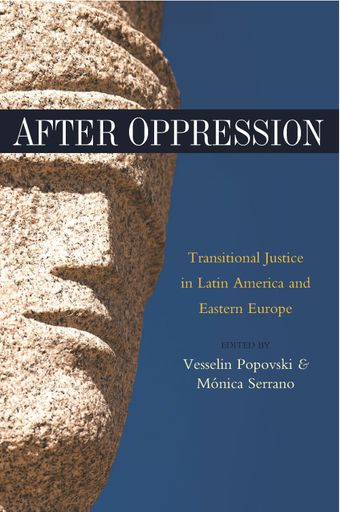- Home
- Books
- After Oppression
- Chapter
Transitional justice without a compass: Paramilitary demobilization in Colombia

- Author: Elvira María Restrepo
- Main Title: After Oppression , pp 143-169
- Publication Date: January 2013
- DOI: https://doi.org/10.18356/392c012f-en
- Language: English
Colombia’s experience with transitional justice is one of the tardiest in Latin America, perhaps with the exception of Brazil. It is also a much-needed one owing to the enormous number of victims and the length of the armed conflict. Yet, for many (Arango, 2008; Díaz, 2008; Hristov, 2010), it is still controversial whether the process of demobilization of approximately 52,000 combatants that started in 2003 really is a case of transitional justice. Human rights activists in particular have strongly denied that there has been any form of transition, contending instead that both war and authoritarianism are still ongoing. An intermediate view acknowledges a partial transition from war to peace, and the more optimistic outlook – based on recent successes of the state and the military over weakened FARC (Fuerzas Armadas Revolucionarias de Colombia) guerrillas – argues that a clear transition has taken place. In fact, some of these optimists assume more extreme positions, claiming that a double transition from war to peace and from authoritarianism to democracy has taken place (Orozco, 2009).
© United Nations
ISBN (PDF):
9789210558938
Book DOI:
https://doi.org/10.18356/abdf8199-en
Related Subject(s):
Human Rights and Refugees
Sustainable Development Goals:
Countries:
Colombia
-
From This Site
/content/books/9789210558938s003-c005dcterms_title,dcterms_subject,pub_keyword-contentType:Journal -contentType:Contributor -contentType:Concept -contentType:Institution105
/content/books/9789210558938s003-c005
dcterms_title,dcterms_subject,pub_keyword
-contentType:Journal -contentType:Contributor -contentType:Concept -contentType:Institution
10
5

